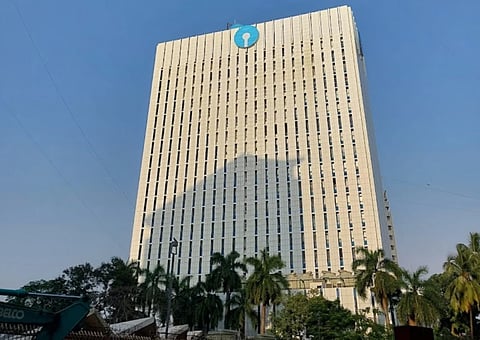

Even as State Bank of India has claimed that it needs another 116 days to submit the list of thousands of people and companies who donated money to political parties under the electoral bonds scheme, some in the banking industry are not buying the arguments given by SBI.
The bank had, in its plea before the Supreme Court, argued that it does not enter the names of the senders and receivers of such political funds in its computer system, and that such details are maintained only on paper. Hence, it asked the Supreme Court of India for four months to tally these details.
Some, such as H Venkatachalam, General Secretary of All India Bank Employees’ Association - the largest and oldest of India’s bank employee unions, are not buying the State Bank of India’s explanation.
“They are saying it takes time to collect the details. So I want four months’ time – up to June. By that time, the election will be over.
“That means there’s something [in it that] ordinary people need not know, which will create an impact on the election. But why should State Bank become a party to that,” he asked.
Thomas Franco, former general secretary of the All India Bank Officers' Confederation (AIBOC) also expressed skepticism over SBI's position.
State Bank of India had, in its plea before the Supreme Court, maintained it does not keep digital records on the sale of electoral bonds to safeguard the privacy of those who are donating money to political parties. Hence, SBI argued, given that it has issued over 22,000 electoral bonds, it is not possible for it to quickly produce the exact data of who paid how much via electoral bonds to which party.
“The moment this news came out, Twitter, WhatsApp, Facebook were flooded with comments – existing employees, retired employees [were] questioning - How State Bank can give this kind of a reply,” he said in an interview with The News Minute.
Another point that the two banking industry veterans dispute is SBI’s position that it has to depend entirely on physical records to come up with the data sought by the Supreme Court.
Franco, for example, points out that it is not possible – in this day and age – for such large transactions to bypass the bank’s digital system.
He points out that the person making the donation has to transfer the money to SBI only through his account, and therefore, this will leave a record in the bank’s digital ledger – saying such and such amount has been transferred from the account of such and such person to SBI to create a bond.
Similarly, he says, the political party can only receive the money into their account, and this too will therefore leave a digital trail in the bank’s infrastructure – saying such and such political party’s account has been credited with such and such amount from the redemption of an electoral bond.
“There is no cash transaction. So automatically, it’s put through the [core banking] system. Then the person takes it and gives it to a political party and the political party has to encash it. This also comes through the banking system only. It’s not paid in cash, it’s credited to their account,’ he explained.
In addition, he says, a bank such as SBI is not going to simply credit hundreds of crores of rupees to a political party on the basis of a paper instrument without checking its authenticity. This would not be very difficult, given that the only entity in this world that can issue such bonds is also SBI. Hence, when a particular political party submits bonds of Rs 200 crore issued from SBI’s New Delhi branch on July 4 2022, it is logical that the bank will check its records to see if its New Delhi branch actually issued bonds worth Rs 200 crore on July 4.
“While issuing [the bond] there’s a transaction number. While paying it, again, the transaction number is matched to know whether it is a genuine bond that was issued by the bank, and the transaction is closed and money is paid,” Franco said.
Venkatachalam too believes that a bank such as SBI should be able to produce the data sought by the Supreme Court without much effort. Even if one goes by their averments that the transactions are not captured anywhere on the digital system, it should not take so many days to process the physical records of a few thousand transactions.
“Even then, why should it take four months? It can be done in one day,” he says.